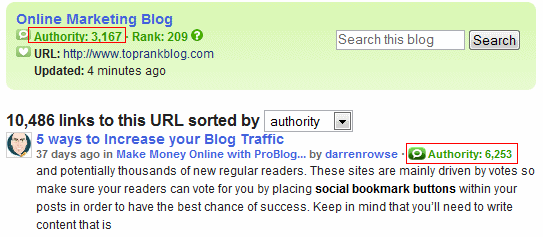Okay, so technically, this isn’t a blogging related article, but since I received the original press release because I’m a blogger, I’ll stretch a point and hope that Rick won’t get too upset with me for posting it here on BBC. 🙂
One of the great challenges I see that bloggers face, particularly business bloggers, is how to respond to negative feedback. Whether it’s private email, a comment left on your blog, or even another blogger publishing a criticism of your posting on their own blog, if you’re going to blog, you need to have a relatively thick skin. More than that, though, you also need to learn how to make the proverbial lemonade out of lemons, how to turn negative feedback into something positive.
A recent example of how to do this showed up in my mailbox when I, along with many other bloggers, received a press release from BlinnPR, agency of record for KeepYouSafe.com, with the ghoulish title
ANNA NICOLE SMITH WOULD BE SIX FEET UNDER IF SHE HAD KEEPYOUSAFE.COM
The subtitle explains it a bit better: “Online Safe Deposit Boxes Help Families Avoid Ugly Legal Hassles”. Nonetheless, the entire Anna Nicole Smith story is a sad and depressing tale of greed, the perils of media, and lost souls, certainly not one upon which to hang a PR campaign in my opinion.
Bloggers generally reacted with strongly negative feedback (see Gizmodo, Paul McNamara at NetworkWorld and Ryan Block, for example), but rather than blog about it, I just sent a quick note to Steve Blinn, principal at BlinnPR:
Oh ugh. What a terrible headline and tie-in concept. Sorry, Steven, but this is not good PR in my book.
His response is a superb example of the very best of PR writing, and demonstrates exactly how you can take a negative — a thought leader in your market sending you a blunt criticism — and turn it into an apology and explanation of the benefits of the product and why it’s not as bad as it seems:
Dave,
Perhaps I did go a bit far in our “Anna Nicole” press release. It was written with tongue firmly planted in cheek and intended to be a take-off on all the tabloid coverage this story has (and continues) to receive.
In many ways, the disarray of Smith and Brown’s estates is indicative of an American culture that avoids contemplating death and its impact on family and friends.
Sadly, many of your readers (even though they’re not celebrities) are similar to Smith and Brown – they haven’t updated their will and they haven’t prepared a burial or interment plan. And, more importantly, whatever documents they do have are not readily accessible upon their death.
Given that issue, the service that KeepYouSafe.com offers, a safe and secure Online Safe Deposit Box, is a possible solution to this issue.
If I erred by writing a provocative headline and lead, I’m guilty as charged. But, the fact remains, many of your readers, just as Brown and Smith, have not updated their wills, have not written down their precise burial and interment wishes, and don’t have those document readily available to their heirs or executors.
Steven
My question to you, BBC reader, is how well do you respond effectively, thoughtfully and professionally to criticism when you find it online in any form? I think that Steven’s response is a fine model of the best approach possible and while I still don’t like the headline, he has written a sufficiently smart response that I’m willing to reconsider the possible value of KeepYouSafe.com, to give ’em a second chance as it were.
Note: The email shown here is reproduced with permission. Obviously, I have no other relationship with Steven or KeepYouSafe.com.


 I was really, really impressed with the generous offer. So I put my hand up. And I’m pleased to say that I was one of the lucky recipients to the Cirque du Soleil show called “
I was really, really impressed with the generous offer. So I put my hand up. And I’m pleased to say that I was one of the lucky recipients to the Cirque du Soleil show called “






